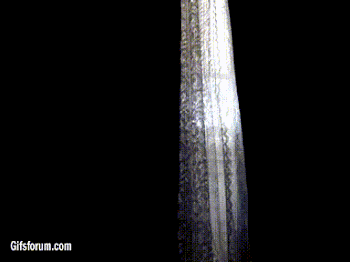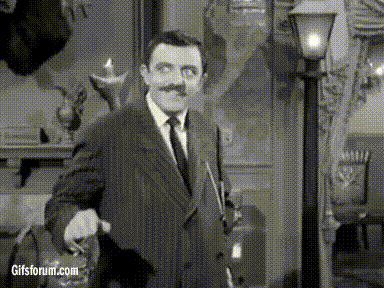The happiest day–the happiest hour
My sear'd and blighted heart hath known,
The highest hope of pride and power,
I feel hath flown.
Of power! said I? yes! such I ween;
But they have vanish'd long, alas!
The visions of my youth have been–
But let them pass.
And, pride, what have I now with thee?
Another brow may even inherit
The venom thou hast pour'd on me
Be still, my spirit!
The happiest day–the happiest hour
Mine eyes shall see–have ever seen,
The brightest glance of pride and power,
I feel–have been:
But were that hope of pride and power
Now offer'd with the pain
Even then I felt–that brightest hour
I would not live again:
For on its wing was dark alloy,
And, as it flutter'd–fell
An essence–powerful to destroy
A soul that knew it well.
I will confess right now that I don't know a lot of Poe's poe-etry, and to dip into it is difficult, for it's melancholy and dense and written in that Victorian way, full of morbid verbal bric-a-brac and swirling emotional effluvia. So I cast around for something a bit lighter. Ah! This must be it, The Happiest Day! Even a morose devil like Poe must have had a little fun, even though it's said he never had sex with his wife, and perhaps not with anyone. Even his biographers don't know for sure, and the secret died with him. But when I found this poem and realized it was relatively short, I thought, aha, here's one I can analyze line-by-line without busting my brain or bursting into tears.
Analyzing poetry is an awful thing, really, because it should mean exactly what it means to the reader. If it's really good, the poem reads you. It pulls uncomfortable stuff out of you, the stuff we shove aside in order to get through the day and deal with its noise and tussle. Whilst all this dark and slimy stuff lurks beneath.
So I will let this poem read me. It seems to be saying - and here I am reminded of Oscar Levant's statement, "Happiness isn't something you experience, it's something you remember" - that what we call happiness is so evanescent that it melts and evaporates even as we experience it. The poet, who was maybe 22 when he wrote this, feels his life has already peaked and it's all a downward slide from here on in (though little did he know he'd only make it to forty).
It's a short poem, after all, certainly short for for Poe - but he packs a lot into it, or rather sneaks it in. Two weighty words repeat almost as alarmingly as those infernal "bells, bells, bells, bells, bells, bells, bells": "pride" and "power":
The happiest day–the happiest hour
My sear'd and blighted heart hath known,
The highest hope of pride and power,
I feel hath flown.
My sear'd and blighted heart hath known,
The highest hope of pride and power,
I feel hath flown.
Is the poet in some sort of disgrace here? Or has he missed out on something? "The highest hope of pride and power" - this isn't about happiness at all, but about position, worldly position! Loftiness, almost. And because he fell off his high horse, he's whimpering about it: "sear'd and blighted" seems to imply some sort of assault from the outside, a burn, a rotting on the vine, which is a vastly different thing from internally-generated grief.
Of power! said I? yes! such I ween;
But they have vanish'd long, alas!
The visions of my youth have been–
But let them pass.
The visions of my youth have been–
But let them pass.
And, pride, what have I now with thee?
Another brow may even inheritThe venom thou hast pour'd on me
Be still, my spirit!
Now here's a mysterious couple of lines: "Another brow may even inherit/The venom thou hast pour'd on me". Who is this "other", and is "inherit" to be taken literally? And how can pride - whom I assume he is addressing rhetorically - pour venom on someone? Or perhaps it's the loss of pride? Again, it's the external assault, the snakebite from the bluff. "Be still, my spirit!" may not have been quite as histrionic then as now, but it's still an obvious play for sympathy.
The happiest day–the happiest hour
Mine eyes shall see–have ever seen,
The brightest glance of pride and power,
I feel–have been:
The brightest glance of pride and power,
I feel–have been:
"The brightest glance of pride and power" - but now we begin to see the vanity at the core. Bright glances, ah, those too must come from the outside - glances of approval, we must assume. Or is the "glance of pride and power" really his own? Whichever it is, it's revealing that this is the thing that made him happiest - a happiness he is certain will never come again.
Or does he not deserve to be happy?
But were that hope of pride and power
Now offer'd with the pain
Even then I felt–that brightest hour
I would not live again:
Now is he really telling us here that, given the chance to relive it, he would turn away the brightest moment of his life? Is this sour grapes - who needs this, anyway? - or is he so far into his own self-pity that he actively chooses pain over pleasure?
Even then I felt–that brightest hour
I would not live again:
Now is he really telling us here that, given the chance to relive it, he would turn away the brightest moment of his life? Is this sour grapes - who needs this, anyway? - or is he so far into his own self-pity that he actively chooses pain over pleasure?
But he's not saying that at all. He is saying "the HOPE of pride and power" - and a hope isn't the same thing at all, it's just a desire, unfulfilled. Something that was never real to begin with. A fantasy.
And then he tells us - if I'm digging anything real out of this at all - he tells us he wouldn't want to experience that hope again because he KNOWS it would be followed by some awful, shot-sparrow, plummeting despair. This is some sort of definition of soul-destroying melancholia.
For on its wing was dark alloy,
And, as it flutter'd–fell
An essence–powerful to destroy
A soul that knew it well.
And, as it flutter'd–fell
An essence–powerful to destroy
A soul that knew it well.
I can't help but feel, as this densely-written, enigmatic thing comes to a screeching close, that it's really about the old Biblical warning, "Pride goeth before a fall". Certainly the image of the falling bird seems to imply that all his lusting and yearning for power and approval will eventually bring about his downfall. I don't quite get the "alloy", which is a sort of metallic reference that does not fit with shot sparrows or ravens or whatever-it-is (though it is a dandy rhyme with "destroy"). Alloy seems to indicate two elements fusing together. Pride and power? Poe and status, perhaps literary status? Is this alloy the "essence" which is so powerful (oops, that's ironic - power IS the problem) to destroy? It's unclear if the alloy is an external element this time, or something inextricably bound up with his own heart. Which would mean that the poet has, in contemporary terms, sold out.
But the kicker is that last line. "A soul that knew it well" - knew what, the shallowness of power trips and pride, of drawing-room debate over which poet has scored the most literary points (or pale waxen virgins gently expiring on velvet divans)? Has he been playing worldly games all along, and being utterly seduced by them? Is he afraid to re-enter the Eden of his youth, because he knows damned well he'll just be thrown out of there again?
Oh, not another original sin poem! Anything but that!

POST-BLOG NOTE. I was amazed but not surprised, in trying to find tasty images of Poe, that I kept coming up with pictures of John Astin, the actor who portrayed Gomez Addams in The Addams Family. It seems he has played Poe on the Broadway stage, and my goodness, they wouldn't need to put much makeup on him! He's a dead ringer for the man (except too jolly by half). I think Astin must be, oh, God in heaven, 90 years old by now if he's still around, and Poe expired at 40. His Gomez was so wacky and vibrant that it's hard to imagine he could plumb such scary depths. But the resemblance goes far beyond his physical appearance. There's something haunted and hunted in those sad and weary eyes.
So maybe it was type-casting, after all.




























